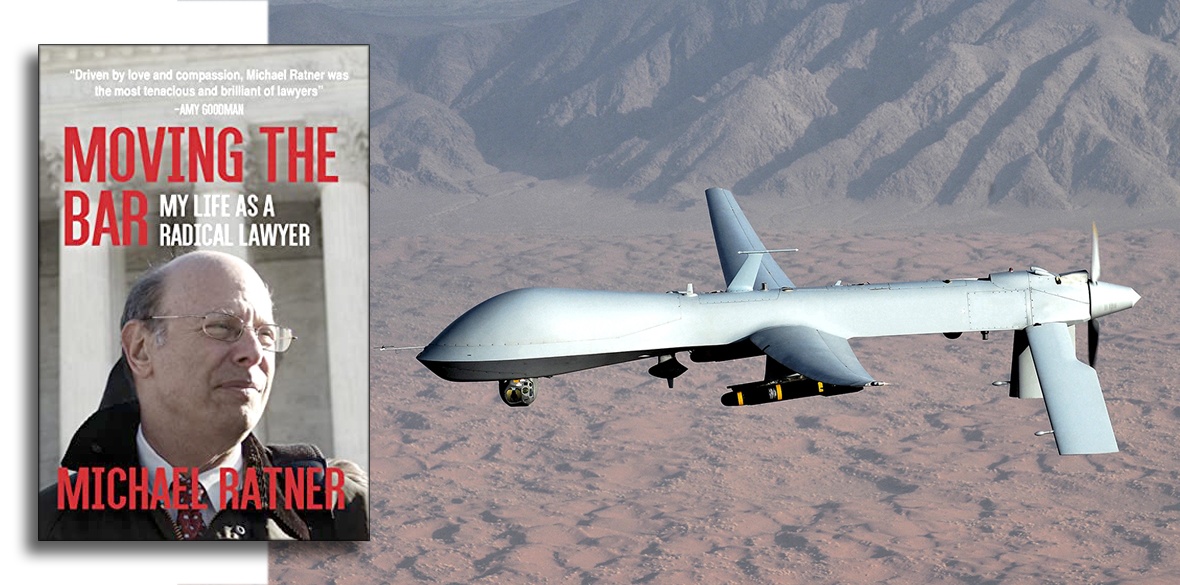This is the last article you can read this month
You can read more article this month
You can read more articles this month
Sorry your limit is up for this month
Reset on:
Please help support the Morning Star by subscribing here
PRESIDENT of the enormously influential Centre for Constitutional Rights, Michael Ratner was not only a massively popular People’s Attorney but a self-proclaimed socialist, prolific author and expert organiser. As a result, he was an internationally recognised enemy of the US empire.
Born into a lower-middle class, progressive Jewish family from Cleveland, Ohio, in 1943, Ratner excelled as a student and went on to teach law in his early twenties at Yale before eventually working for Constance Baker Motley, the first-ever African-American woman appointed to the federal judiciary in the US.
Radicalised by the ongoing militancy of the civil rights movement, opposition to war in Vietnam and events around the Attica prison uprising of 1971, Ratner jettisoned a career within the liberal establishment and consciously devoted the rest of his life to working for those least powerful against those most. He lived up to Camus’s dictum that it is the job of thinking people not to be on the side of the executioners.
In the 1970s and 1980s, aware of the role that corporate capital had played in shaping US foreign policy against the democratically elected government of Salvador Allende, Ratner actively identified with the Cuban and later Nicaraguan revolutions, not only on the basis that those countries had a right to national self-determination but also because their ongoing social, political and economic advances demonstrated conclusively that another world really was possible.
An early critic of zionism, Ratner was quick to contest the outright dispossession of the Palestinian people and initiated legal work in their defence, a position by no means always welcomed in some so-called left wing circles then, as now.
In the post-September 11 era, Ratner won extraordinarily successful lawsuits against war criminal George Bush and his recently deceased and unlamented henchman Donald Rumsfeld, for torture at both Guantanamo Bay in Cuba and Abu Ghraib in Iraq. At the same time, he relentlessly campaigned against the draconian Patriot Law at home.
More recently, Ratner has focused his momentous energies in support of whistleblowers Chelsea Manning, Julian Assange and Edward Snowden.
Quietly spoken, reserved and shy, Ratner was never comfortable with his public persona and openly admits to periods of depression in the face of sometimes uncontested hegemony.
But even when the odds were insurmountable, Ratner argued that exposing the crimes of the elite within the courtroom was a worthwhile enterprise in and of itself and his belief in the transformative potential of education was never once abandoned.
Despite his own political outlook, Ratner was able to draw upon the work and co-operation of hundreds, if not thousands, of sometimes mainstream professionals in a superb demonstration of first-principle coalition building.
The only downside to this was when some erstwhile colleagues endorsed Obama’s drone killings in Pakistan and elsewhere, having succumbed to the ridiculous notion that it was somehow the more humane and just option.
Honest and self-critical to his core, Ratner consistently and openly admitted to errors in judgement and an important part of this book is a retrospective and soul-searching exploration of whether it was correct to popularise Sandinista policies to the peoples of the Mosquito Coast.
Ratner was to die in 2016 but fortunately still had time to write this lively, thoughtful and remarkable memoir.
Published by OR Books, £17.
STEVEN ANDREW











